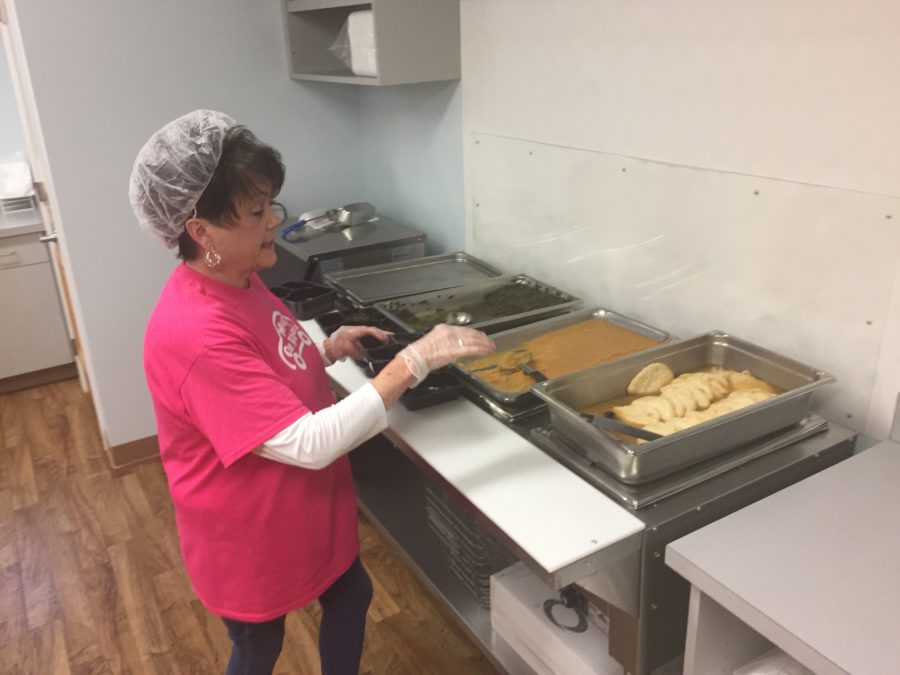This is the seventh in a series of articles reported in Northwest Georgia, an area rich in stories about unmet health needs and about people and programs making a difference. Georgia Health News and the health and medical journalism graduate program at UGA Grady College of Journalism and Mass Communication collaborated to produce this series, made possible by support from the Healthcare Georgia Foundation and the Institute of International Education.
Last year, Meals on Wheels programs brought nearly 4 million meals to 28,000 seniors living in Georgia. But federal support for this program could shrink under President Trump’s proposed budget.
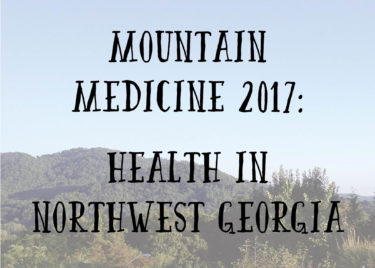
If the federal portion of funding for the program is cut, the effects will reverberate in tiny towns like Chickamauga, where Betty Richardson delivers lunches every week.
On a Tuesday morning in March, Richardson knocked loudly on a battered screen door before calling out, “Meals on Wheels!” She was in the middle of her weekly delivery route in Chickamauga, a picturesque town of 3,000 in the Northwest Georgia mountains.
Over the course of two hours, she’ll drive around the town and drop off seven meals to older folks who have a hard time getting around. She calls them “my seniors.”
Chickamauga’s historic claim to fame is a major Civil War battle that took place here, the biggest single battle ever fought in Georgia. But it’s a peaceful place today, the kind of “Mayberry”-like community where people look after one another, Richardson says.
A chance invitation from her sister got Richardson involved with Meals on Wheels last year, and now she is an integral part of the program. Every week, she and at least three other people meet at the Walker County Senior Life Services Center to package meat-and-two meals, each with a dessert and a carton of milk.
Richardson has gotten to know what her clients care about: She talks baseball at one stop and frets about the weather at another. She’s also checking to make sure that all the folks have taken their prescribed medicines and are feeling OK.
“I don’t do it for the money,” she says. “I love these people.”
Richardson may not be thinking about money, but Meals on Wheels administrators and advocates for seniors in every state certainly are.
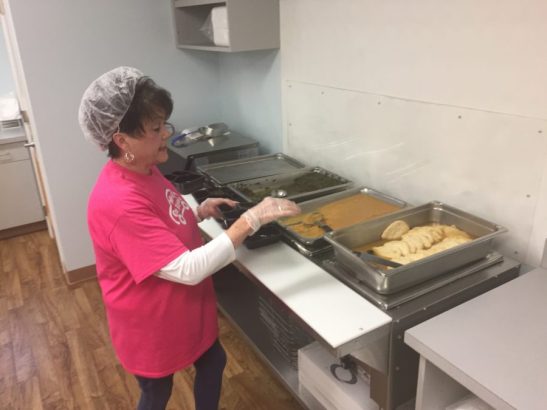
“Meals on Wheels programs are a key ingredient helping seniors age in place and delaying placement in a nursing home,” says Kathy Floyd of the Georgia Council on Aging, one of many advocates who believe the program is essential for homebound seniors.
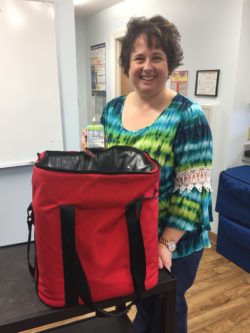
Among other budget cuts, the president aims to reduce funds for the Department of Housing and Urban Development. A good portion of those cuts would come from the Community Development Block Grant program, which supports Meals on Wheels.
In Georgia, where thousands of seniors relied on the meals program last year, the total cost was $32 million. Although private donors and the state of Georgia paid for most of this, $14 million came as federal dollars. Federal funding is authorized under the Older Americans Act, which provides 45 percent of what’s needed to ensure that seniors receive nutritious meals.
Meals on Wheels volunteers do more than drop off a box of healthy food. They also chat with program participants and look for signs of illness or injury. Sometimes they find that a participant has fallen without anyone there to help.
Regular human contact may be even more important than a hot meal, says Pam Reinhart, manager of the Walker County program based in Chickamauga.
“We see a drastic improvement in their health from not just the meal itself, but the fact that they’ve got somebody checking on them. They have a conversation. It doesn’t have to be an hourlong visit. It’s just that they are not isolated,” said Reinhart.
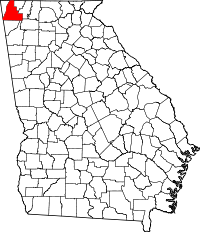
“I look forward to the daily visit,” says Jerrell Hudgins, one of the Chickamauga seniors who gets regular meals through the program. Another is Gladys York, who says the people who deliver the meals make all the difference. “The people are so nice and caring,” says York.
Many old folks keep pets for company, of course, and the animals also need to eat. In Dalton, about 35 miles southeast of Chickamauga, Meals on Wheels drivers bring cat and dog food to some households, though not at government expense.
“The Meals on Wheels people noticed that meal containers were on the floor because they [the meal recipients] were sharing their meals with the pets,” said Devon Brooks of the Northwest Georgia Humane Society. Her organization partnered with the Dalton program and donated 13,000 pounds of cat and dog food in 2016.
Reinhart and her Walker County staff quickly followed suit, and in addition to cats and dogs they’ve fed chickens and peacocks as well. Local donors have made this possible, and Reinhart’s goal is to ensure that seniors want for nothing.
Seniors, she says, are often overlooked in favor of other groups in need.
“A lot of people don’t understand that seniors and children are on the same level” when the seniors lack mobility, Reinhart says, because neither group can go out and buy food on their own.. But children automatically trigger more generosity and support from charities than do older folks, she adds.
Proposed budget cuts have the potential to hurt programs that are already having trouble keeping up with demand. Federal funding, when adjusted for inflation, already has decreased by 18 percent for Older Americans Act programs, including Meals on Wheels. But the senior population has increased by 34 percent over the past twenty years, causing a mismatch.
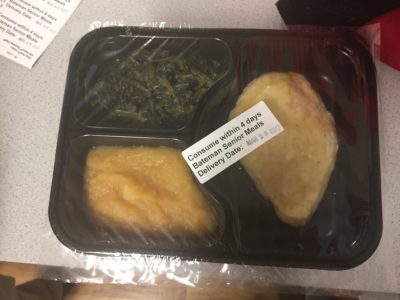
“One in six today struggles with hunger, and we are today serving 23 million fewer meals than we were in 2005 because the funding– the seed that comes from the federal government – has not kept pace with need or inflation,” said Ellie Hollander, the president and CEO of Meals on Wheels, when speaking to Denver Frederick, host of “The Business of Giving.”
Hollander worries that the uncertain political climate will only add to this problem. “I think nobody really knows what direction we’re going,” says Hollander.
For Meals on Wheels volunteers, additional cuts in federal support are unimaginable and unacceptable. Reinhart says, “These seniors need us.”
Elspeth Male is a writer and reporter from Canton, in metro Atlanta. She is currently working on her master’s degree in journalism at the University of Georgia’s Grady College of Journalism. You can follow her on Twitter at: @elspethmale

